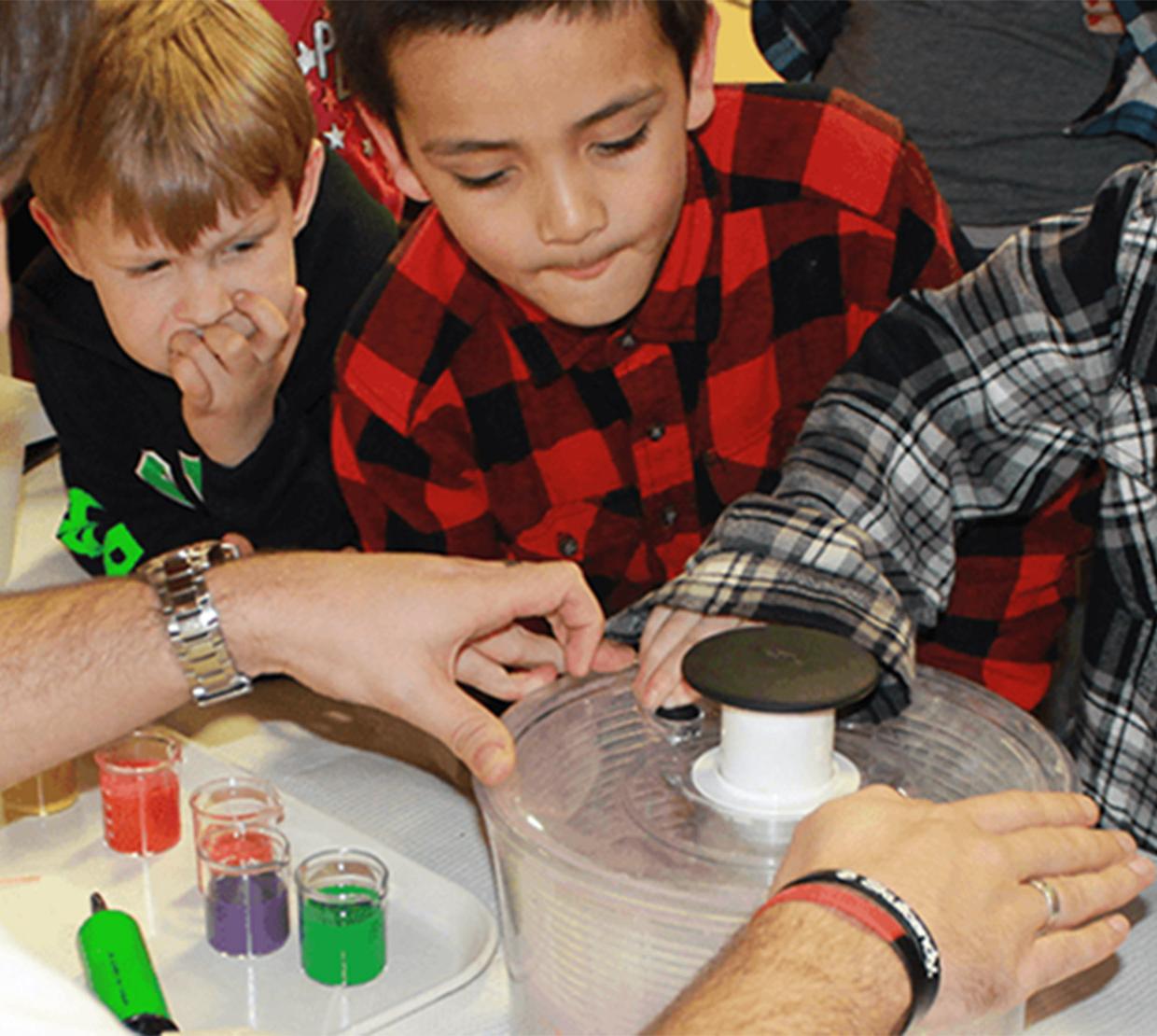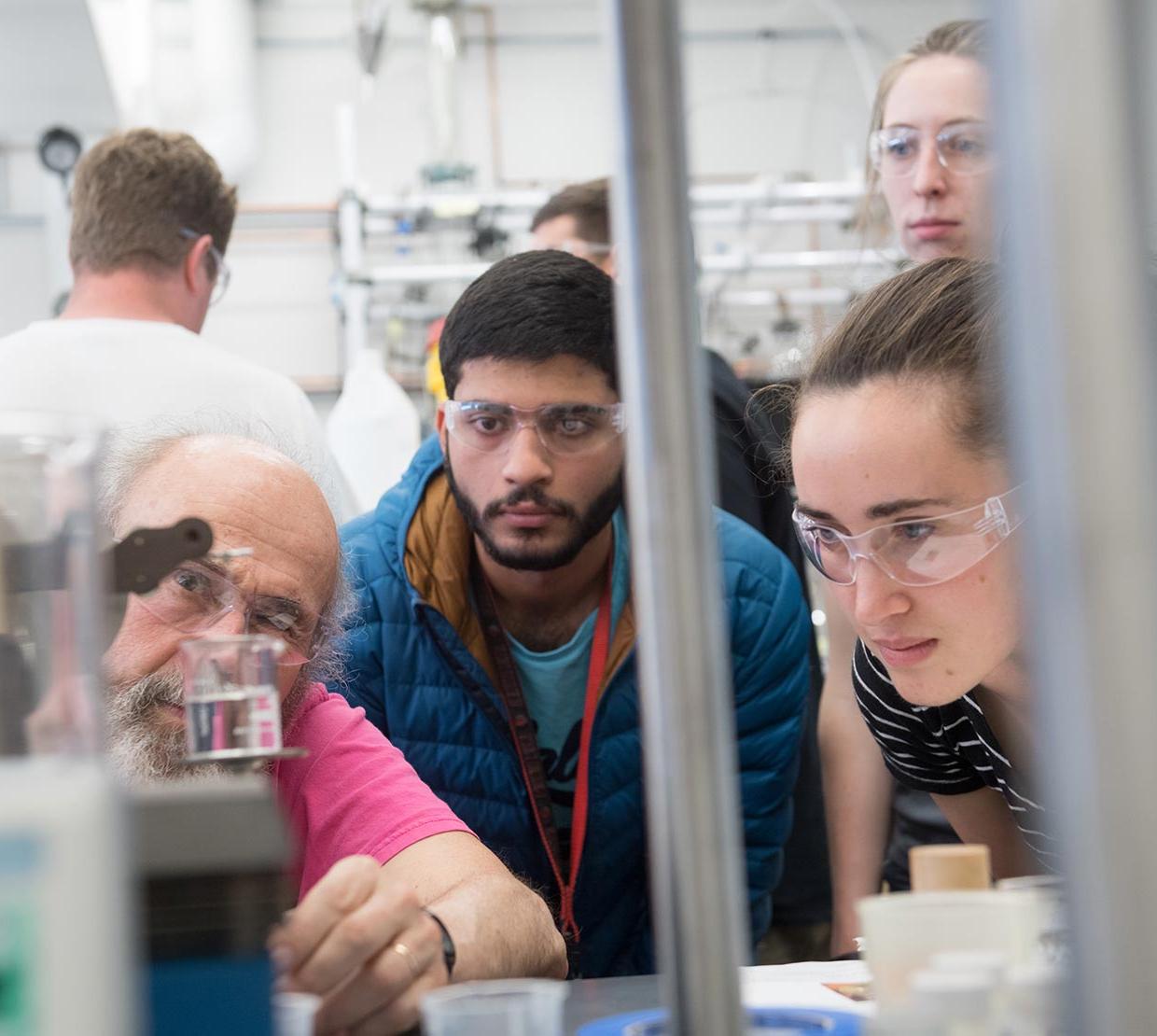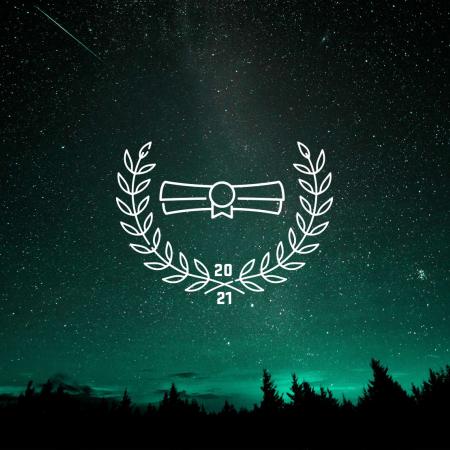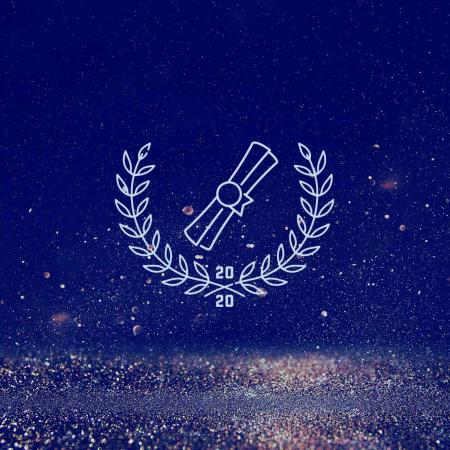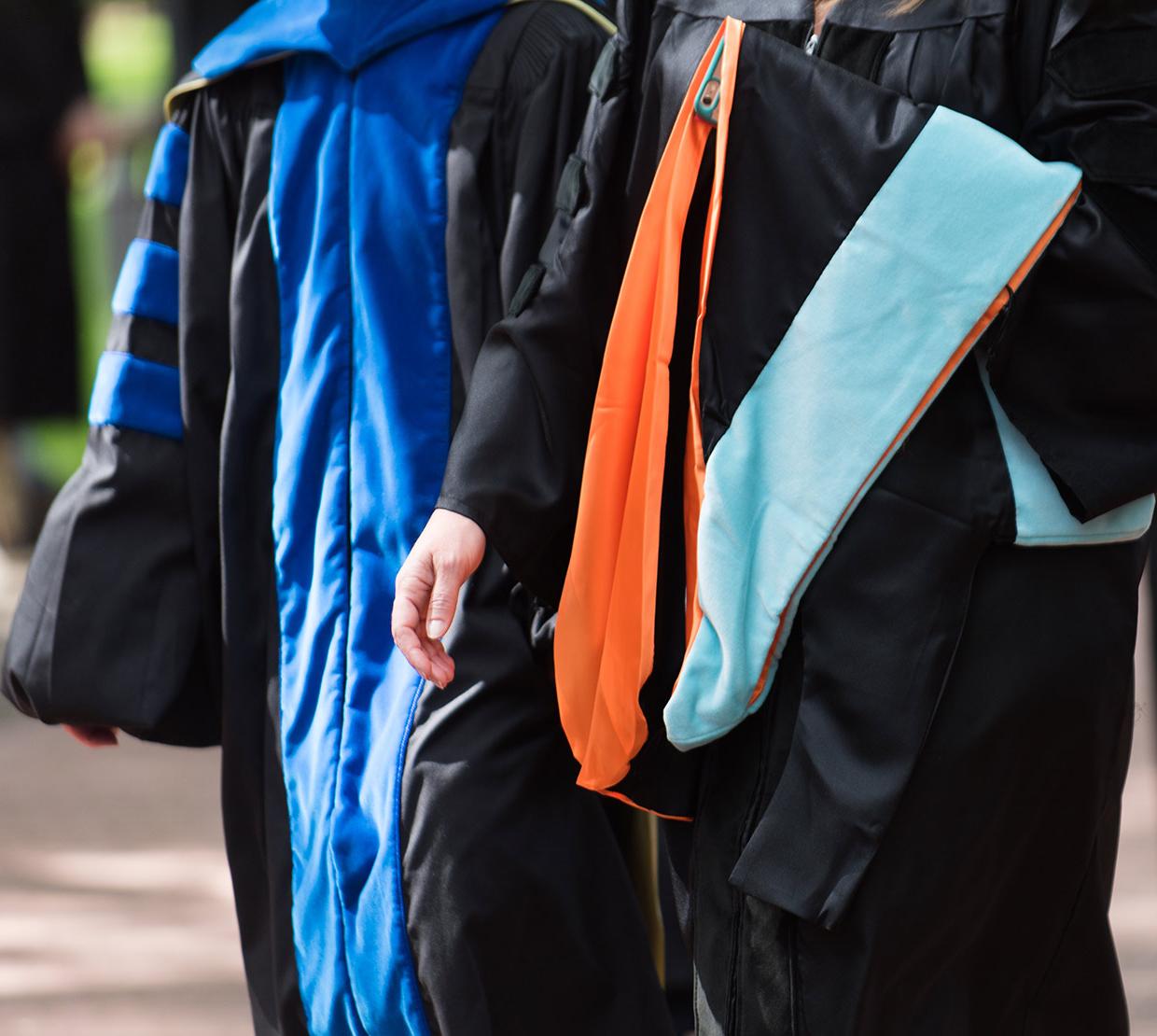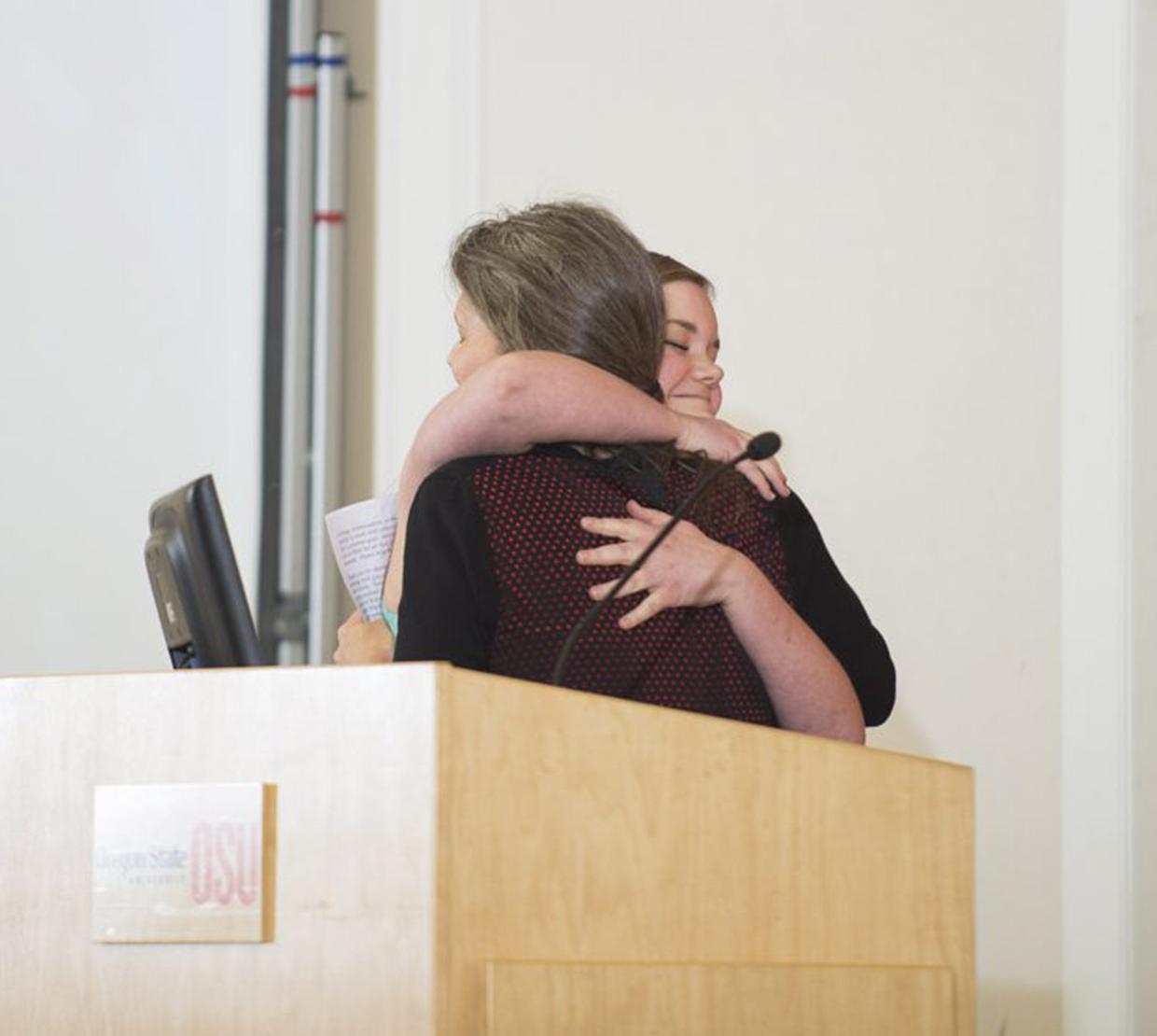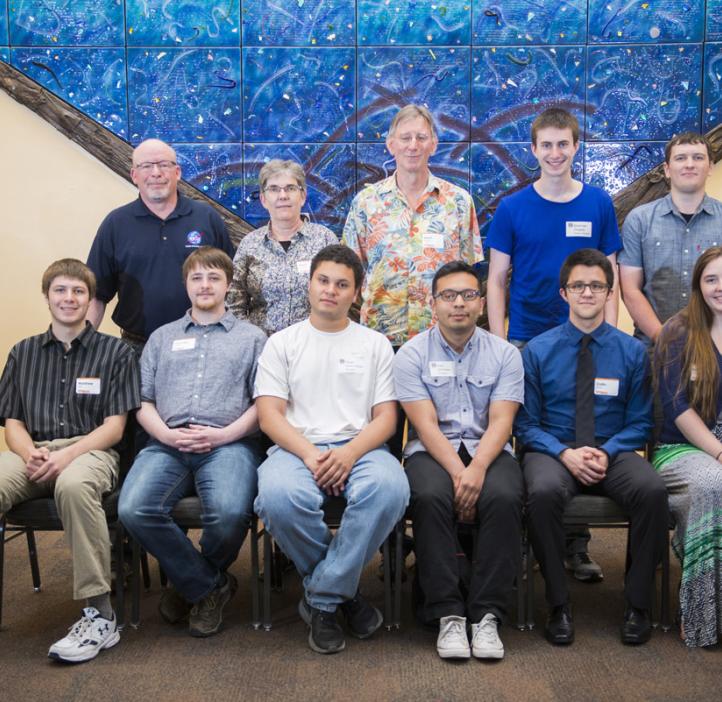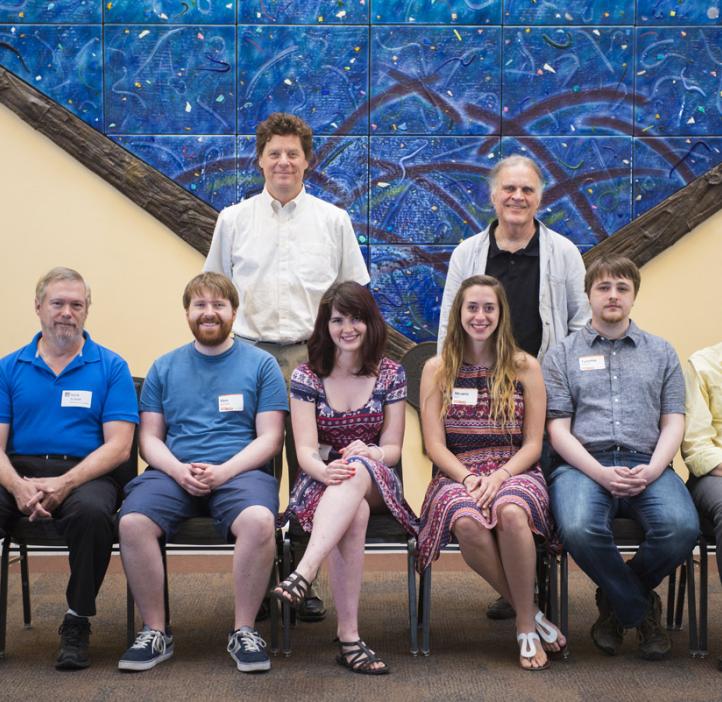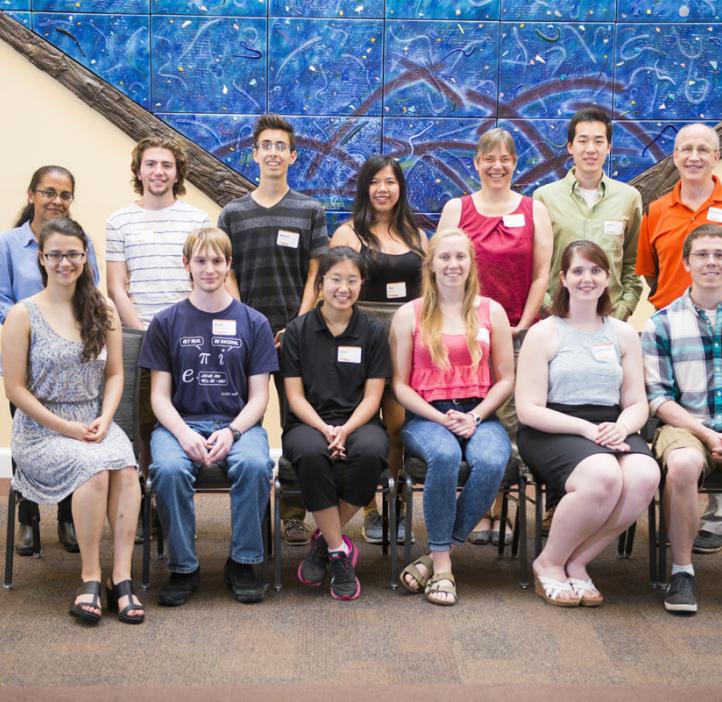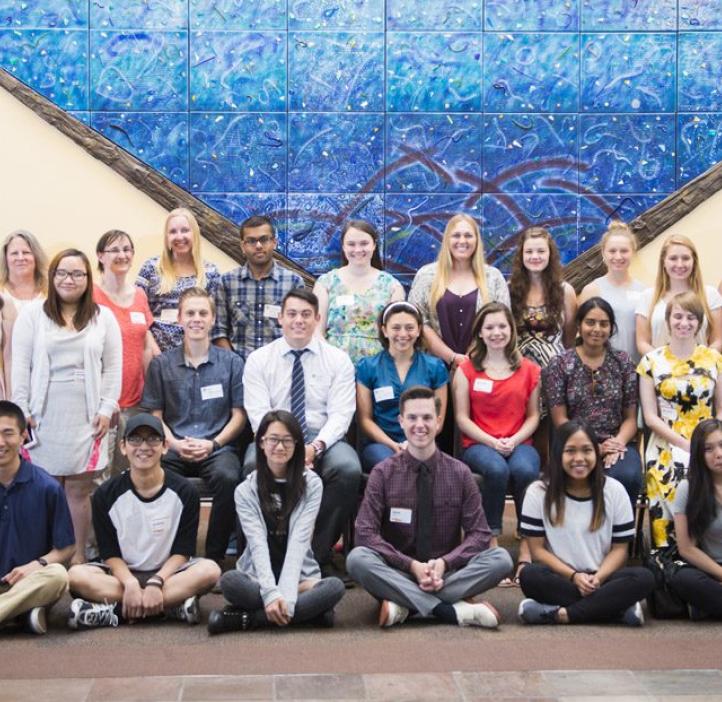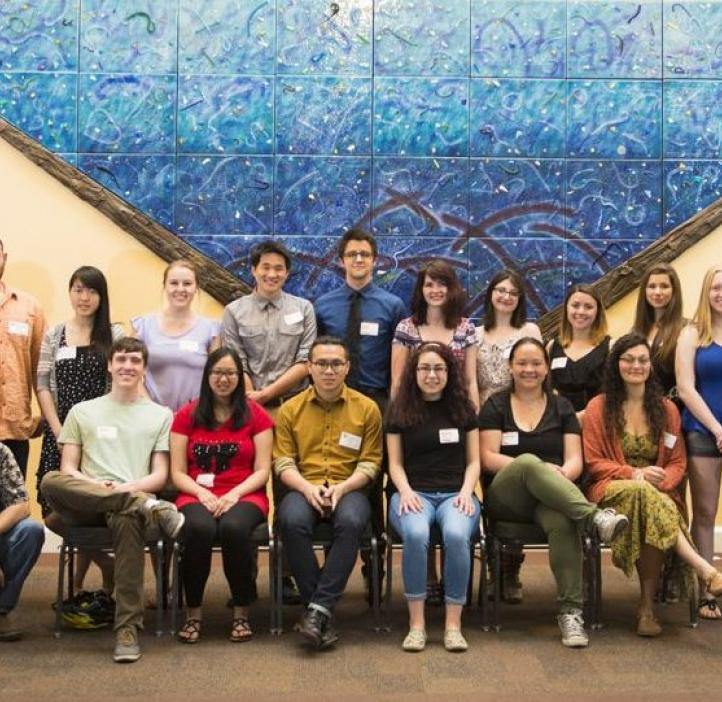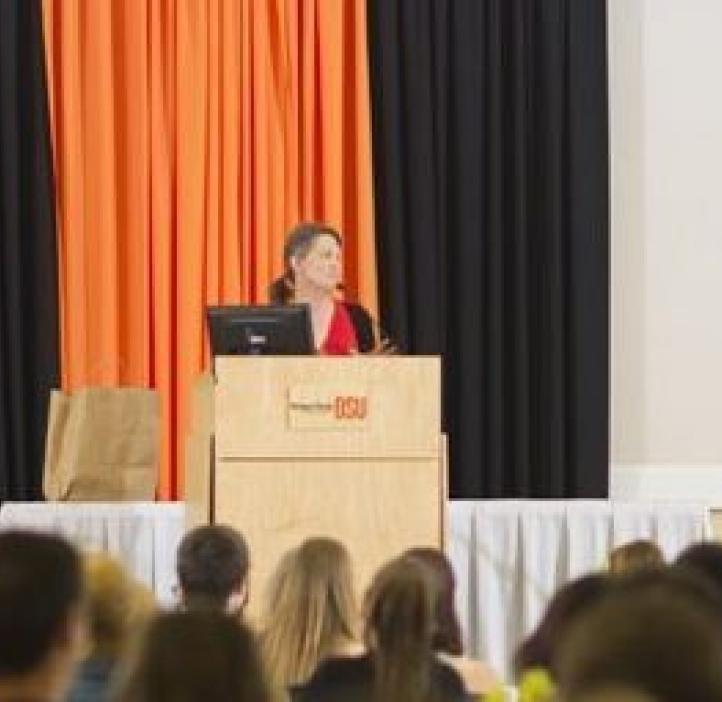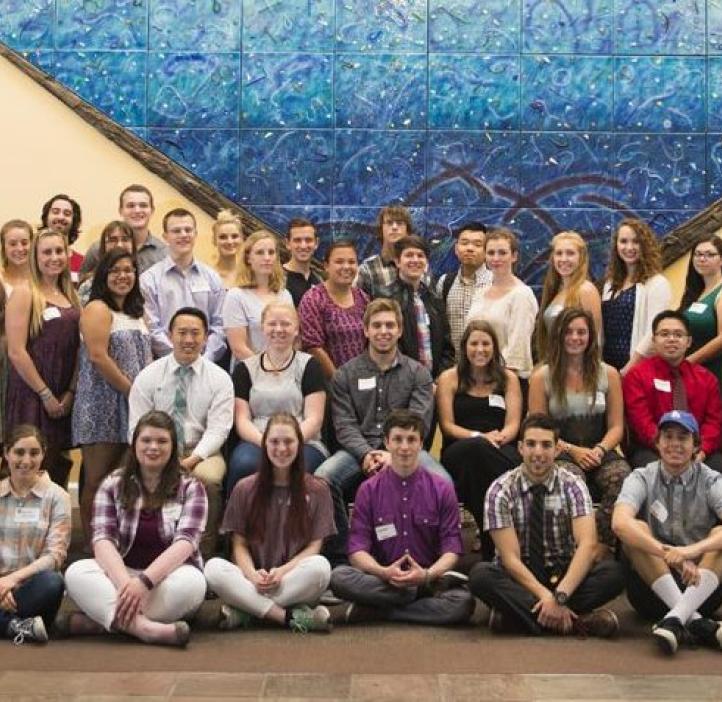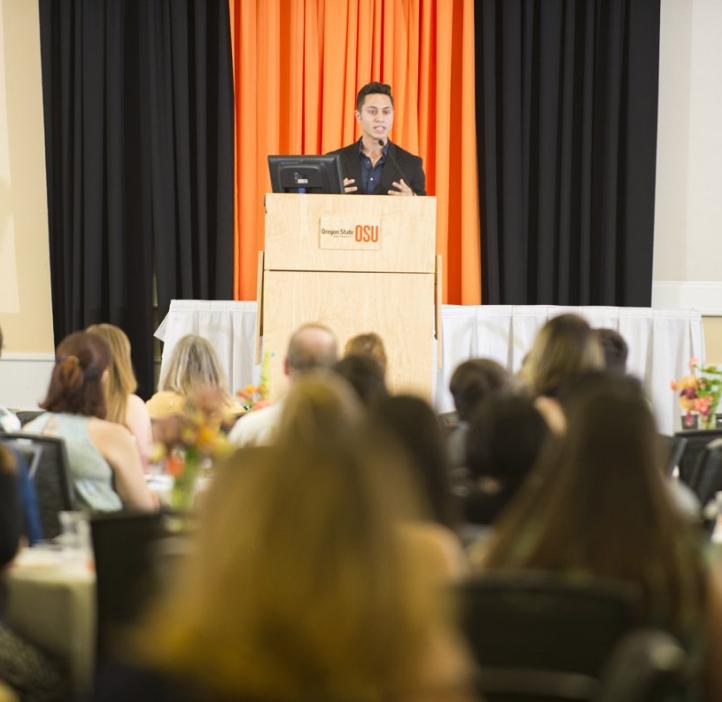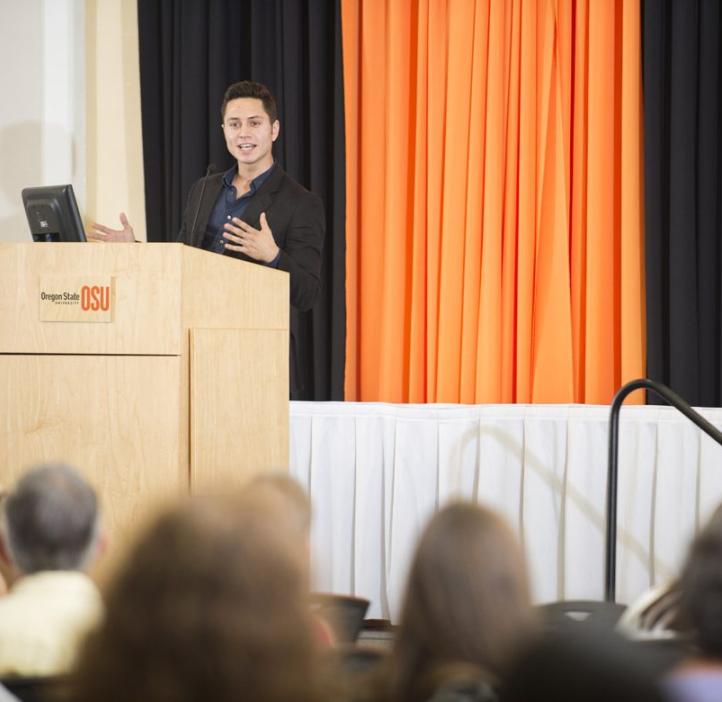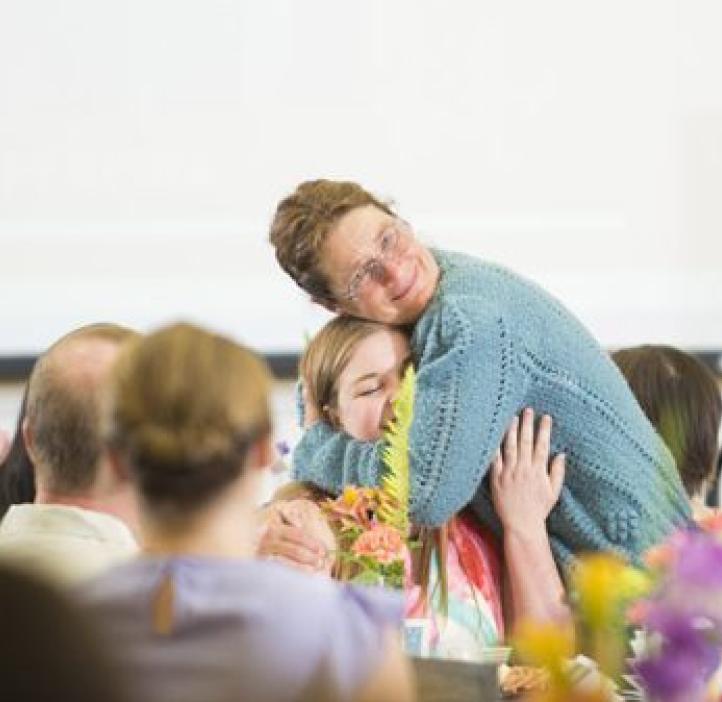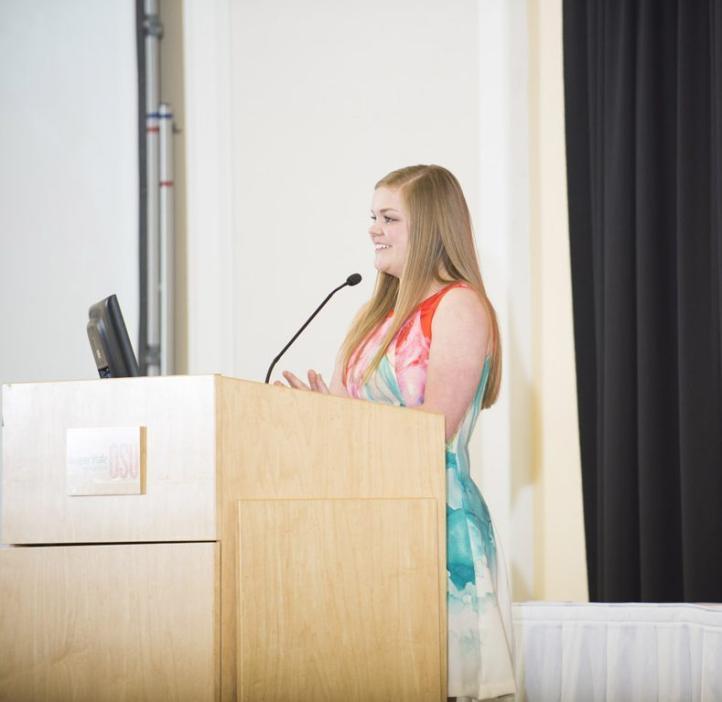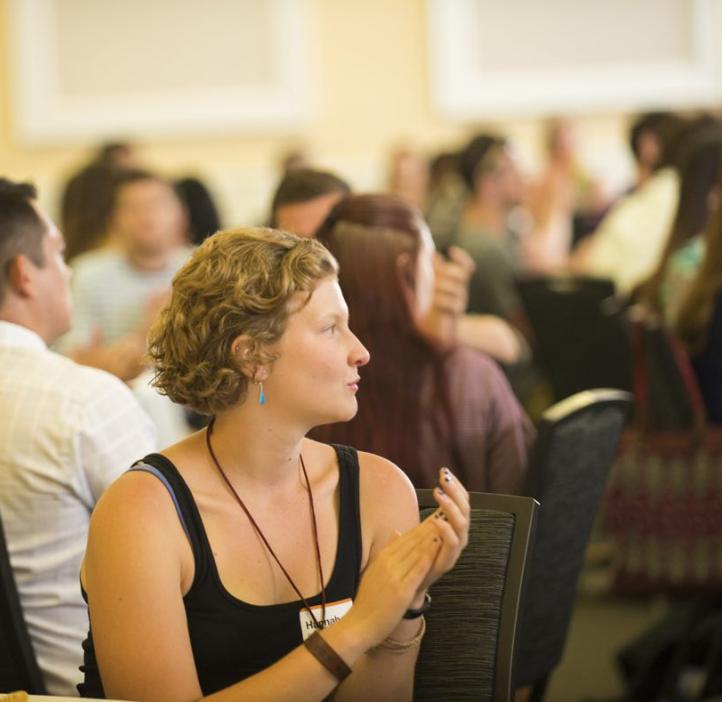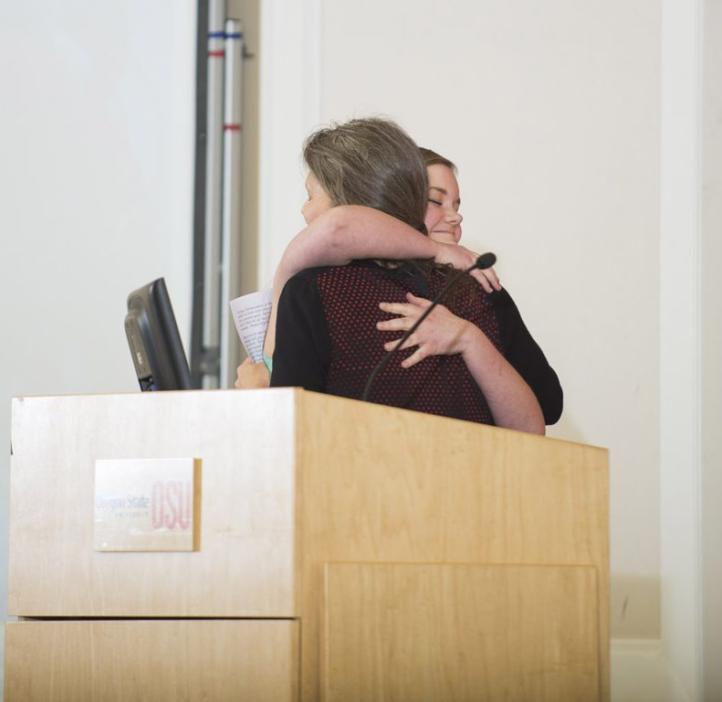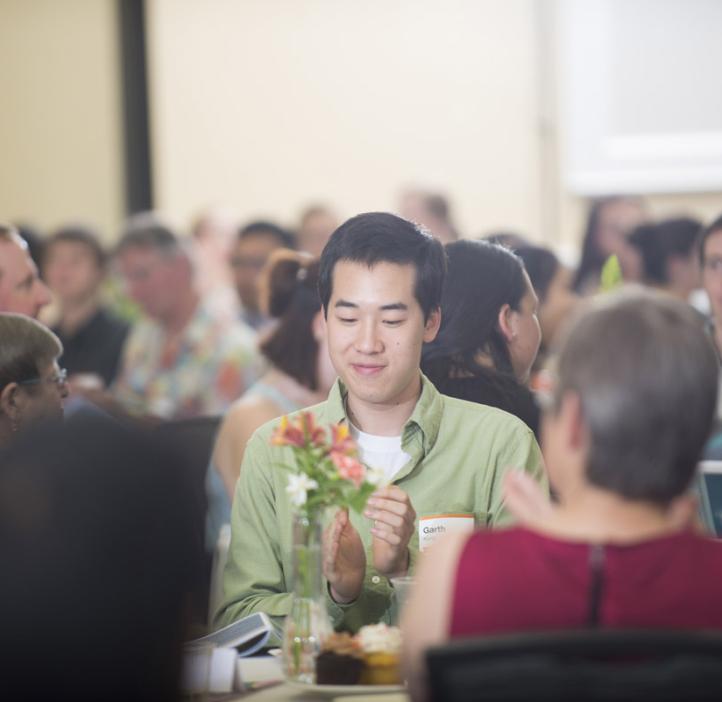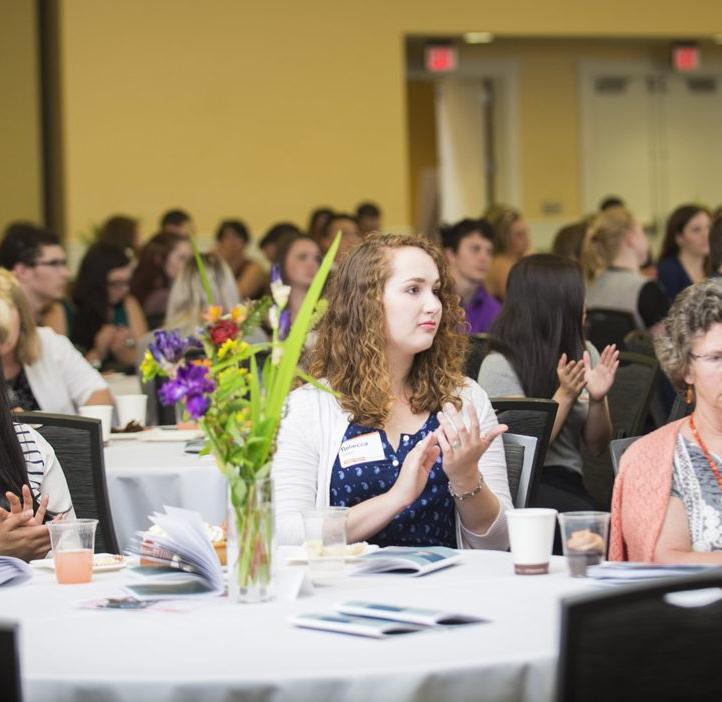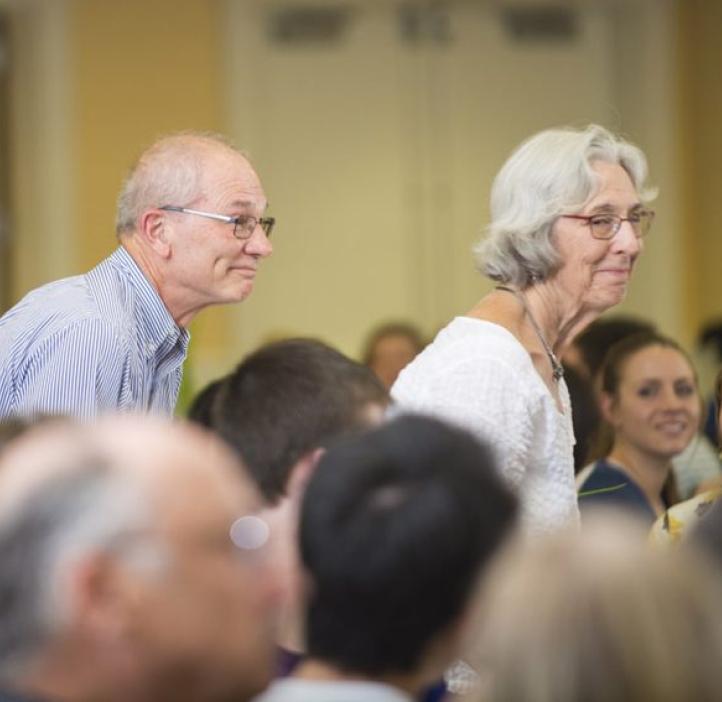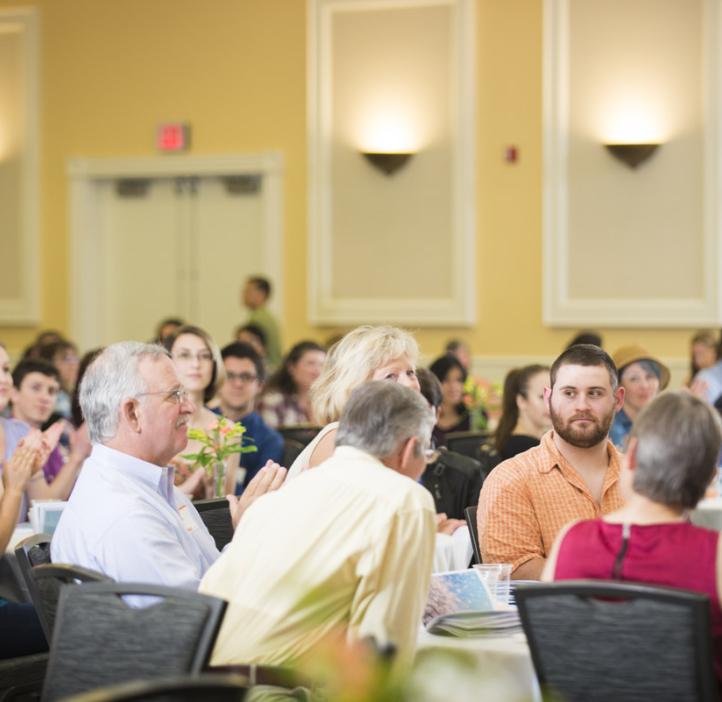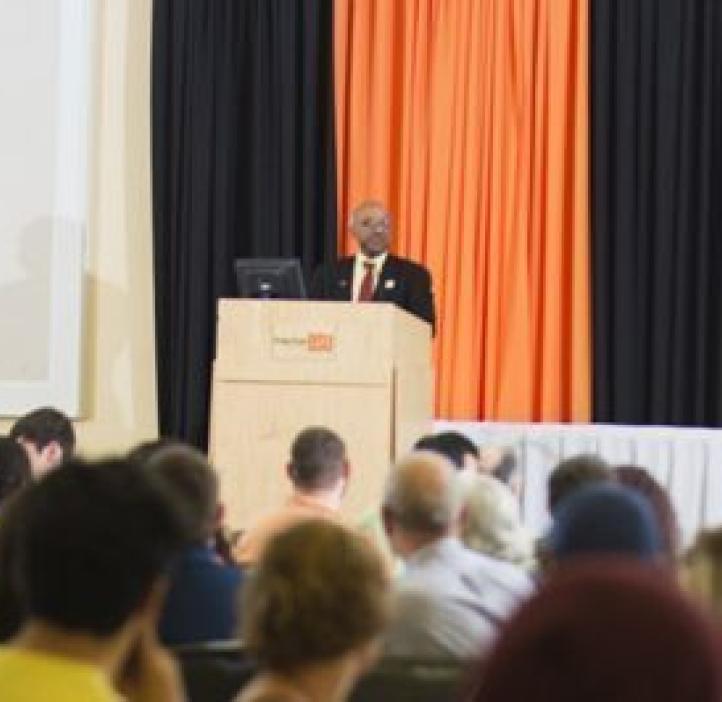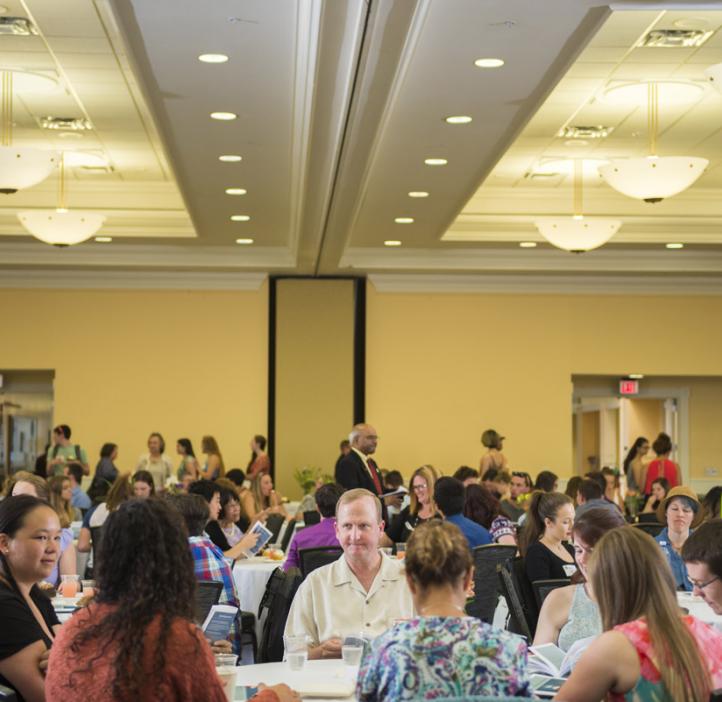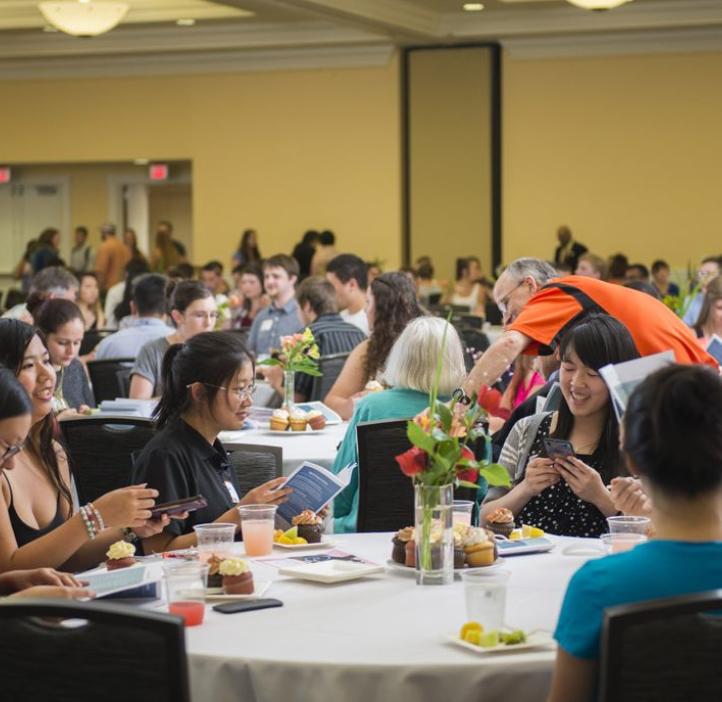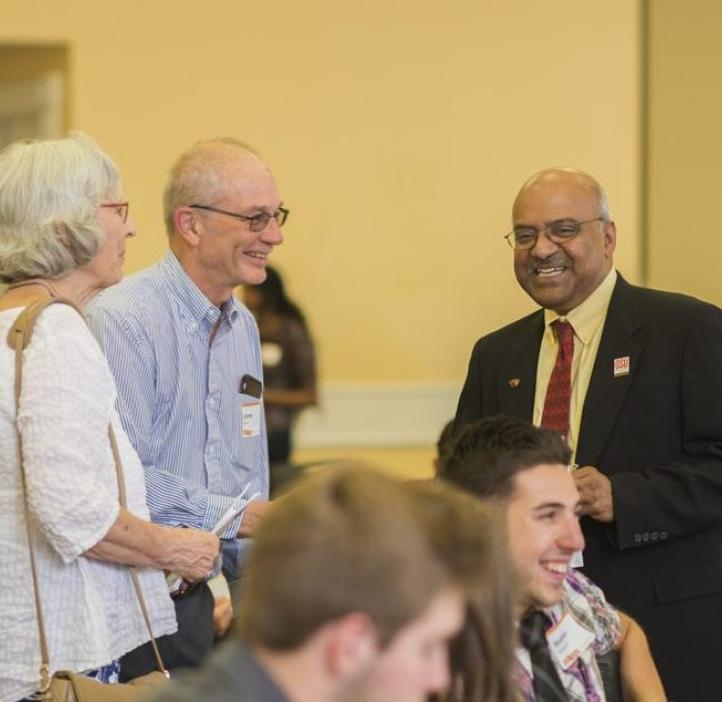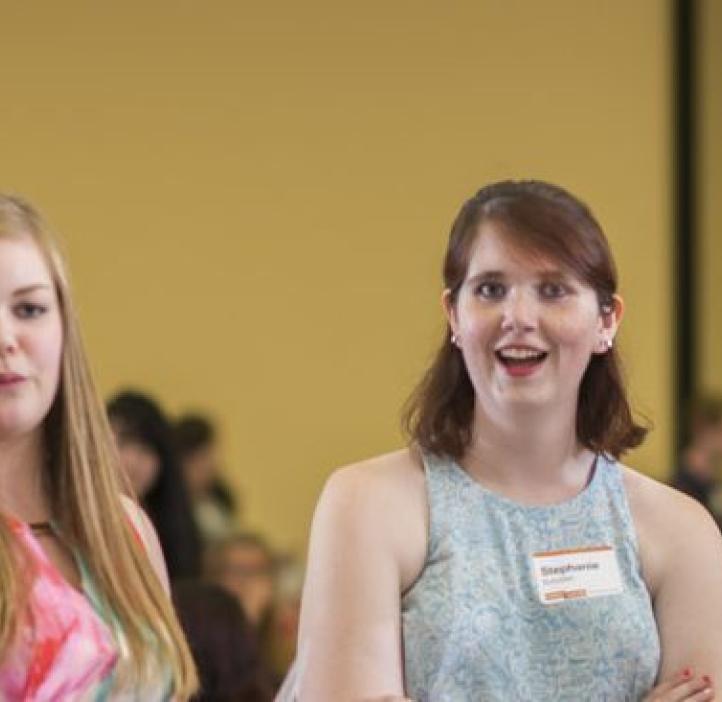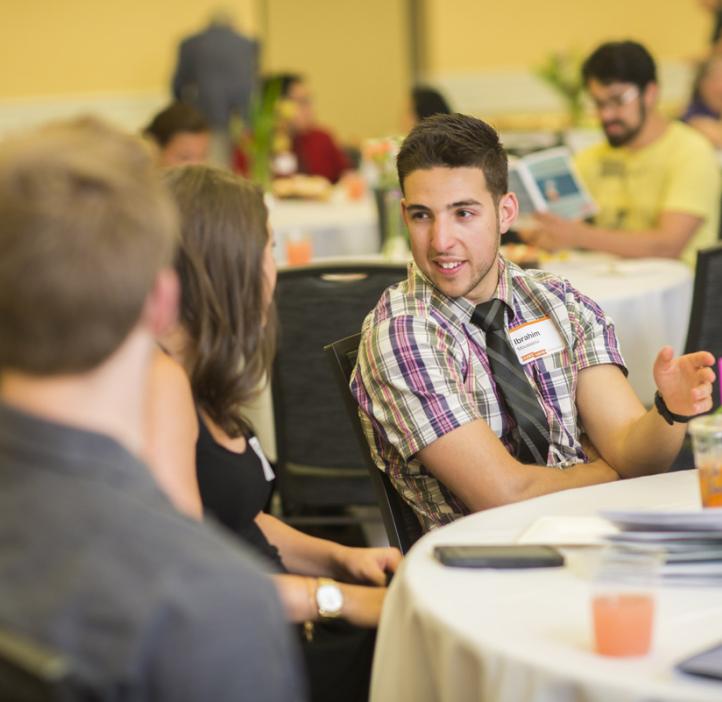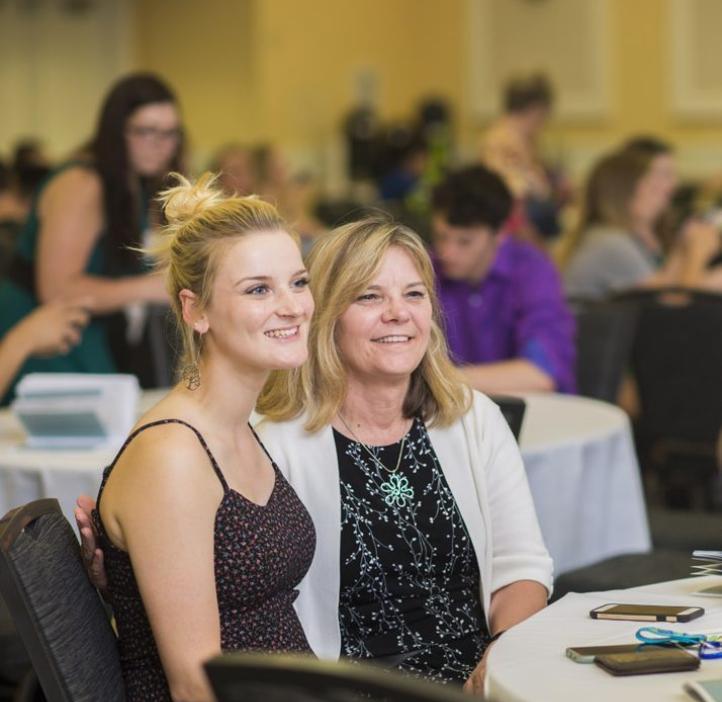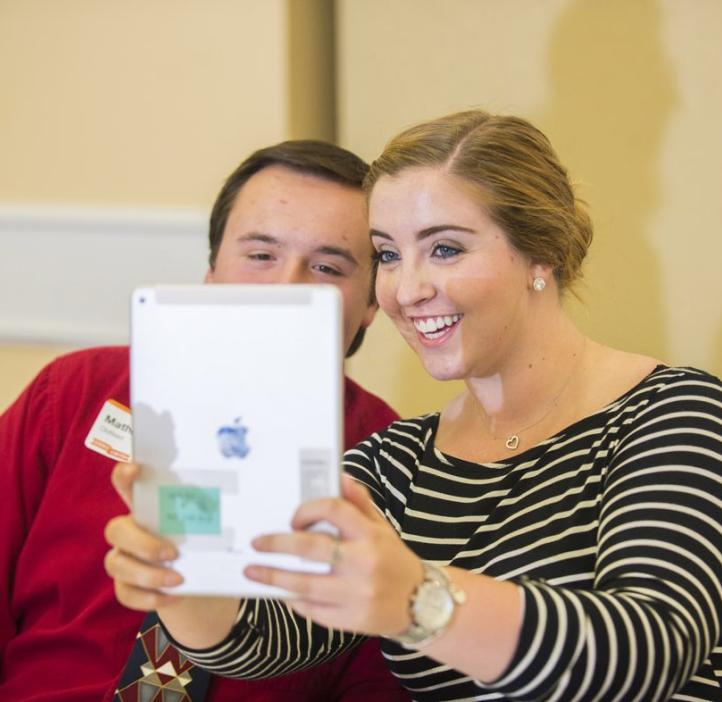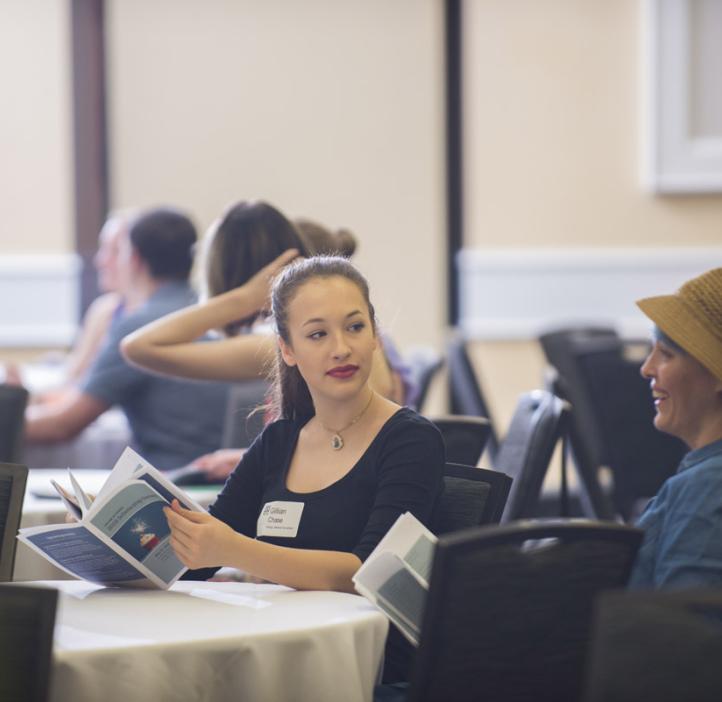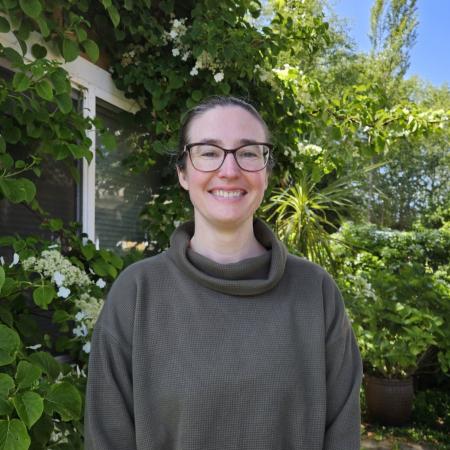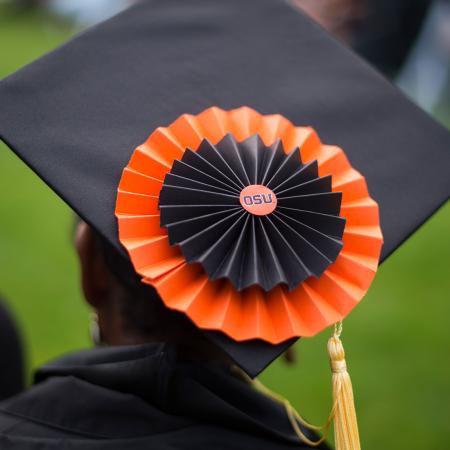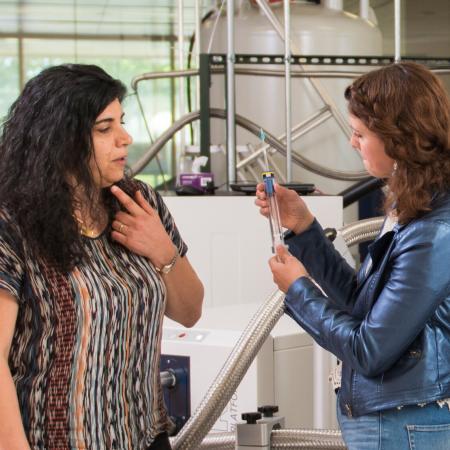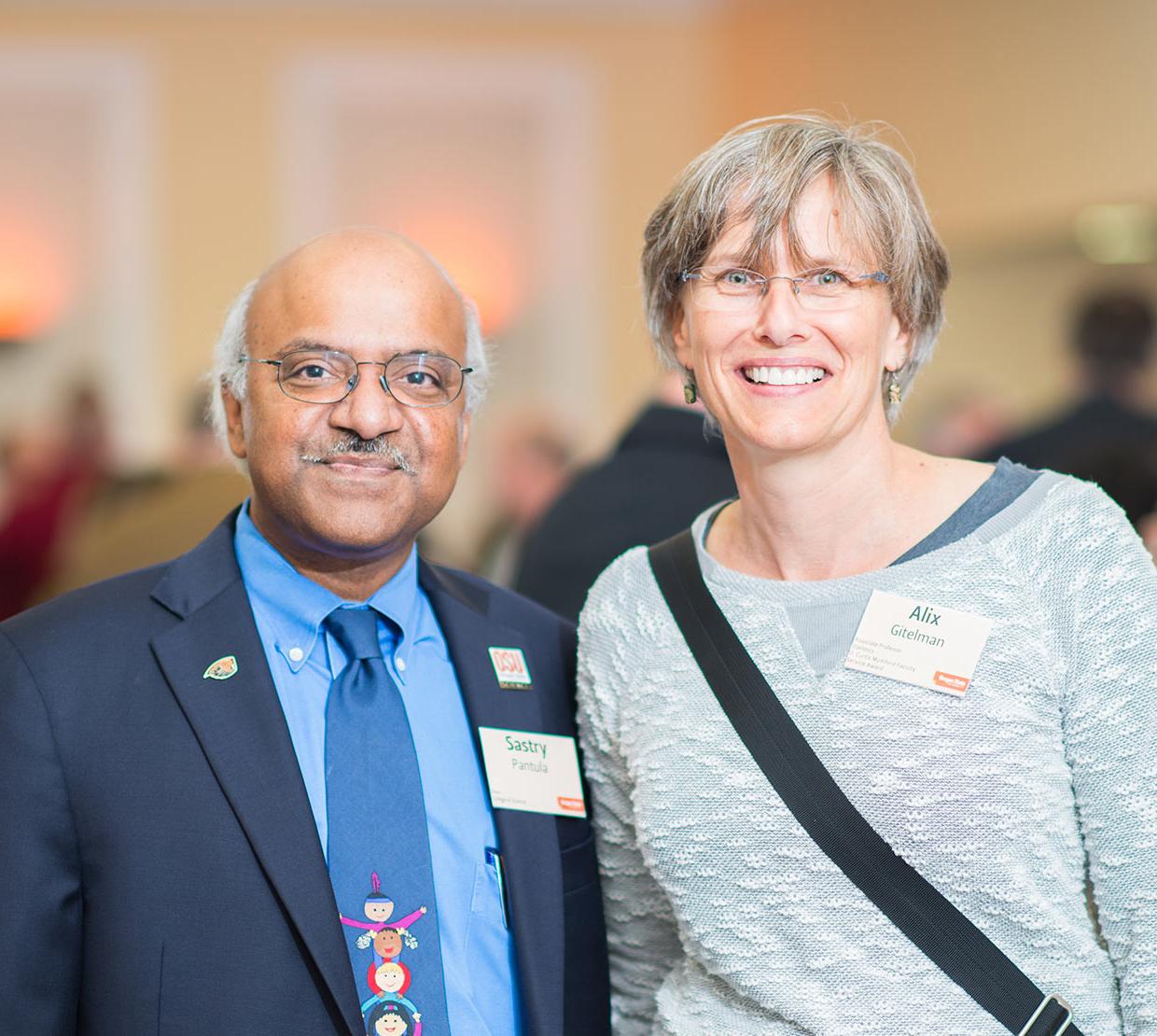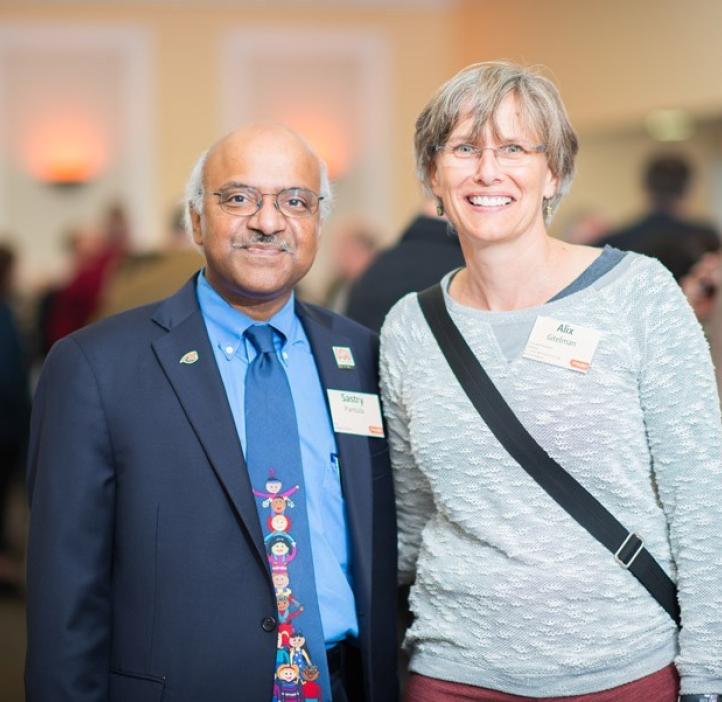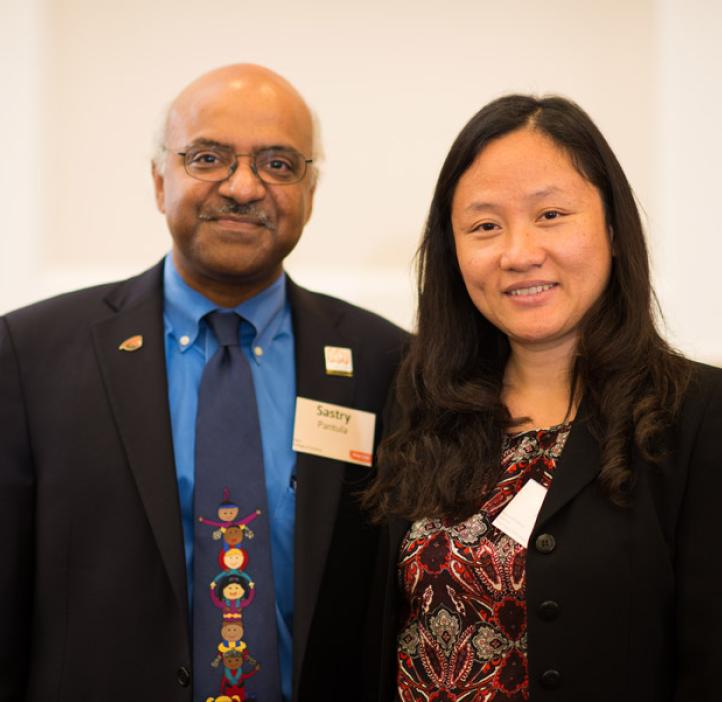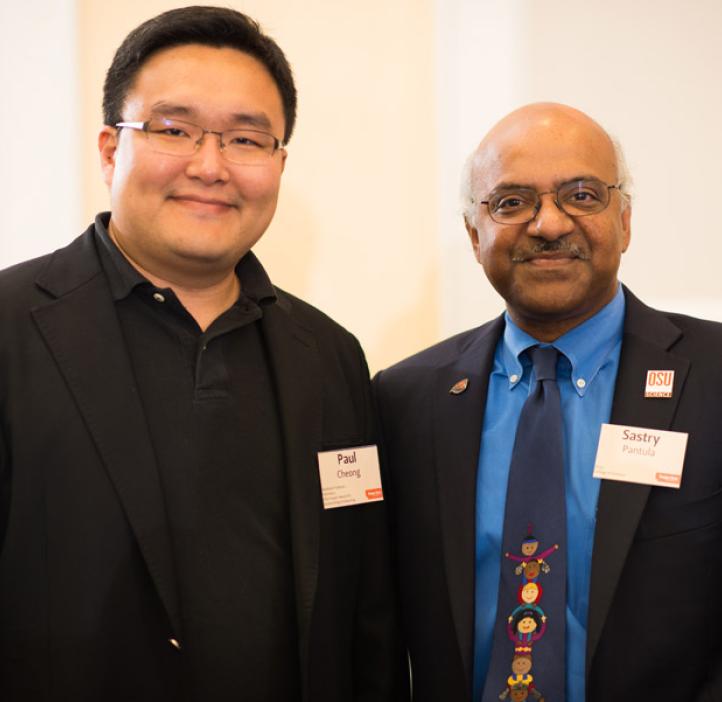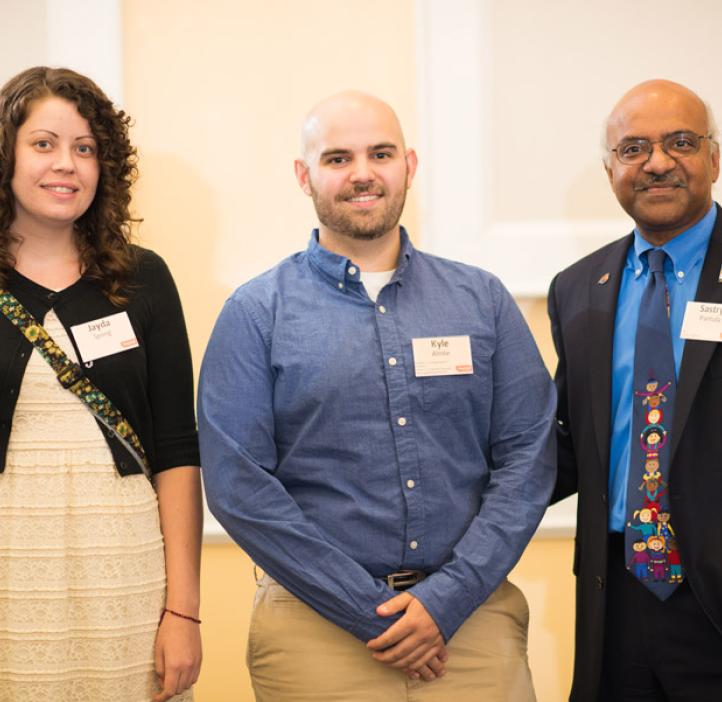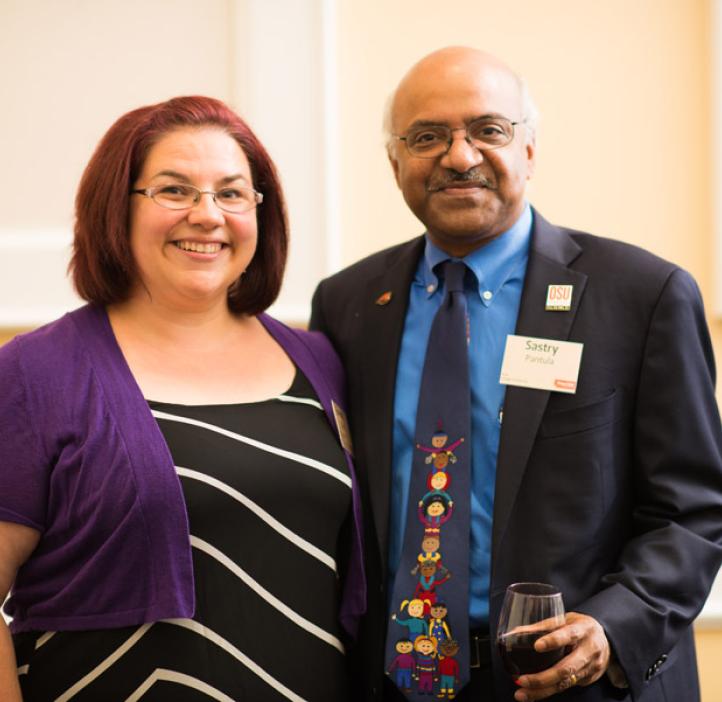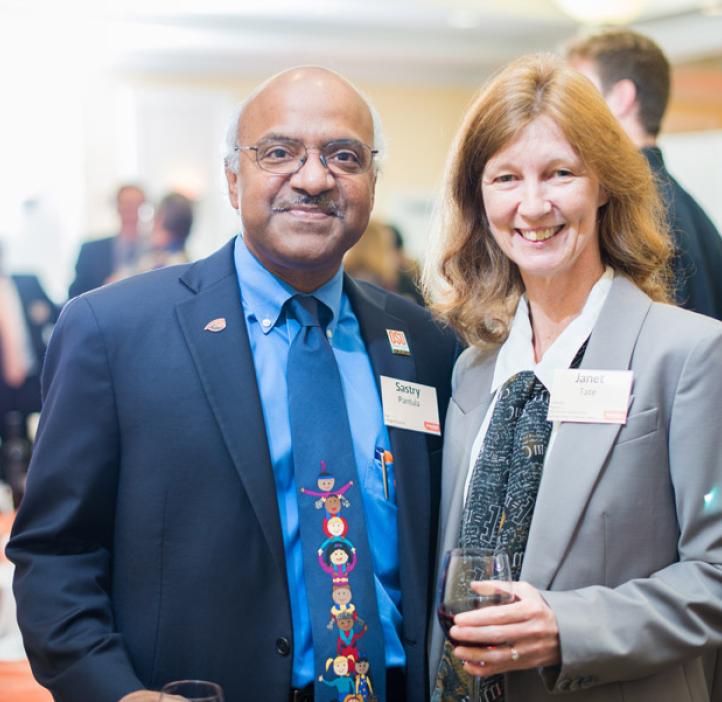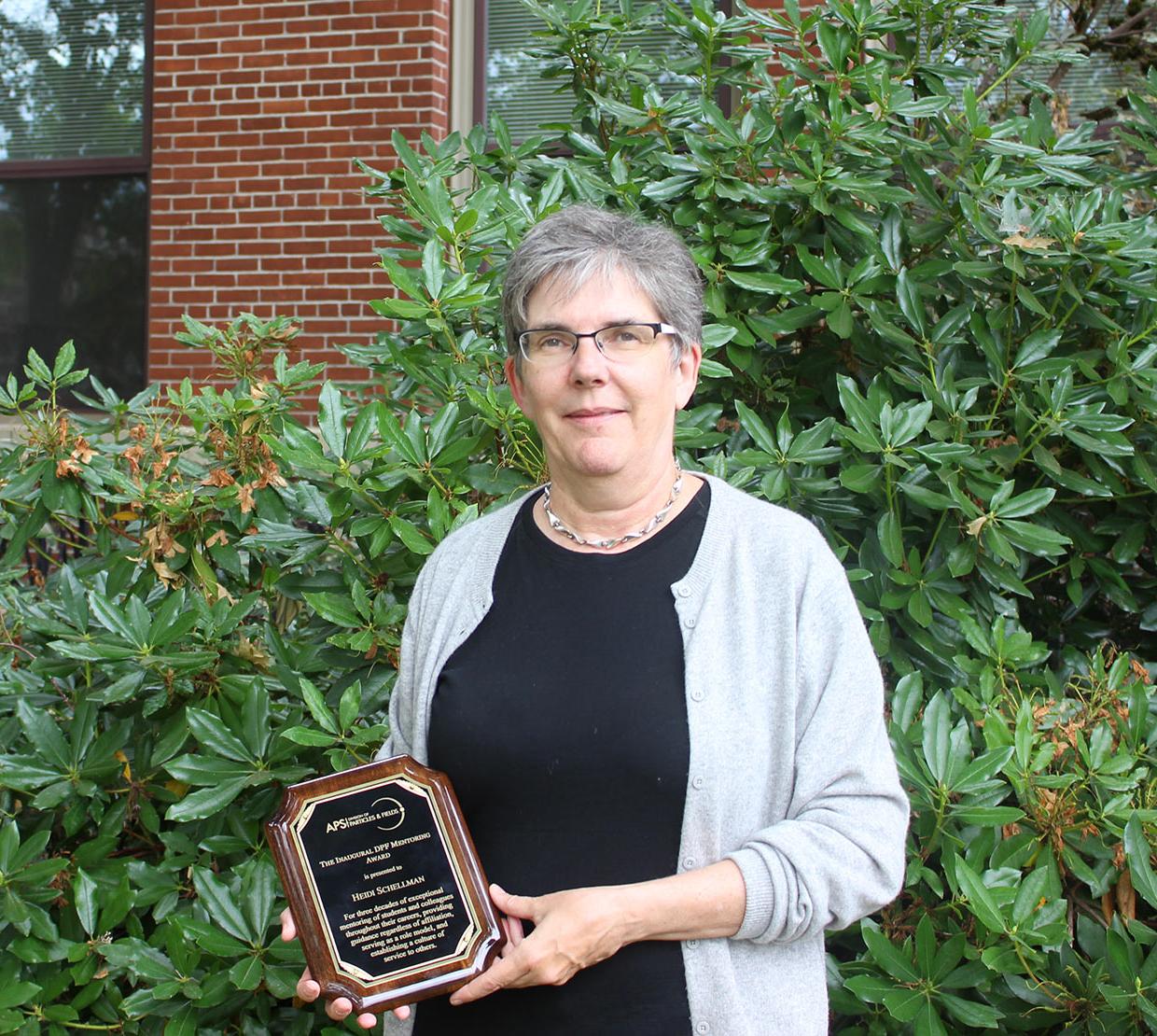Heidi Schellman, professor and head of the Department of Physics, is the newly elected vice chair of the Commission on Particles and Fields within the International Union of Pure and Applied Physics (IUPAP). The newly elected officers met recently at the International Center for Theoretical Physics in Trieste, Italy.
IUPAP promotes international cooperation in physics and sponsors four types of international and regional conferences, including general, topical and special conferences as well as workshops in developing countries. IUPAP Commissions also sponsor Young Scientist Prizes to recognize outstanding early-career physicists in addition to awards recognizing excellence in the subfields of physics represented by the Commissions.
In addition to enhancing OSU Physics’ global reputation, Schellman has received the inaugural 2015 Mentoring Award by the American Physical Society’s (APS) Division of Particles and Fields.
The APS unit award recognizes physicists who have had an exceptional impact as mentors of particle physics scientists and students through teaching, research or science-related activities. The award honors contributions in the areas of mentoring early career physicists, including those from traditionally underrepresented backgrounds and for developing early career research and career development activities.
Schellman received the award last week at the 2015 meeting of the APS Division of Particles and Fields hosted by the University of Michigan, Department of Physics.
“I was very surprised and honored to receive this award," said Schellman. “I try to maintain connections with all of my former students and apparently they remember me, too. It has been a real thrill seeing them grow into scientific leaders.”
Schellman joined OSU’s Physics Department last year following an outstanding career as Professor and Chair of the Department of Physics and Astronomy at Northwestern University’s Weinberg School of Arts and Sciences. She had been on the faculty there since 1990. In her extensive career as a physicist, Schellman has not only made pioneering contributions in the area of experimental high energy physics, but has also had an extraordinary impact on the careers of scores of young scientists and students.
The Mentoring Award committee commended Schellman for “three decades of exceptional mentoring of students and colleagues throughout their careers, providing guidance regardless of affiliation, serving as a role model, and establishing a culture of service to others.”
At OSU, Schellman has already formed a research group with two undergraduates, Gabriel Nowak and Evan Peters. All undergraduate physics majors are required to complete a research thesis so Gabriel and Evan a getting a head start analyzing data from the MINERvA neutrino experiment at Fermilab. One of Schellman’s goals as Head of the Physics Department is to increase research opportunities for physics students, both at Oregon State across the country through national summer research programs.
“Heidi Schellman is an exceptional mentor, teacher and scientific leader,” said Sastry G. Pantula, Dean of the College of Science.
“I am thrilled that she has been recognized with this tremendous national honor which speaks to her passion to mentor generations of physicists. We are extremely fortunate to have her leadership skills in the College and in the Department of Physics where she will have an incredible impact on students.”
Schellman’s dedicated support and encouragement of early career physicists is unparalleled say her students. Her award, says former student Geralyn (Sam) Zeller, is a testament to the loyalty and admiration of a large number of early career physicists—graduate students, postdocs and junior faculty—whom Schellman has taken under her wing over the years.
“Personally speaking, I am one of the people who has been a beneficiary of Heidi’s vigilant support and continued mentoring," said Zeller, who was Schellman’s Ph.D. student at Northwestern and currently leads a team of more than 100 physicists at Fermilab on the MicroBooNE experiment.
"Being a woman in physics has not always been easy, and I would not have stayed in physics if it had not been for Heidi,” added Zeller.
At Northwestern, Schellman served as Associate Dean for Research in the Weinberg College of Arts and Sciences from 2004-2007 where she successfully reconfigured funding packages to increase guaranteed support for humanities graduate students from four to five years.
As department chair she focused on improving support for undergraduate students in Introductory Physics courses by creating smaller classes and introducing drop-in tutoring.
Schellman has also developed innovative courses to better prepare students from underrepresented groups for successful careers in academia. These include a data analysis and programming course to prepare students for research in their junior and senior years, a rigorous Qualifying Boot Camp course for graduate students and a course on research conduct.
Although widely admired for her unstinting guidance and mentorship, Schellman remains modest about her impact on the careers of many physicists.
“When I told Heidi she had won the award she was obviously surprised! She said, ‘I thought everyone did that.’ It’s proof of Heidi’s generosity and selflessness that she doesn’t realize how exceptional she really is,” said Robert Bernstein who was in charge of the Mentoring Award and is a member of the executive committee of APS’s Division of Particles and Fields (DFP).
“Everyone she works with is touched by her care and hard work for others. The DPF is honored to give her this Inaugural Award,” added Bernstein.
Schellman’s leadership and role as a mentor is matched by her achievements as a particle physicist. Her research has focused on measurements of proton structure and electroweak parameters. She is a Fellow of the American Physical Society, and is an outstanding researcher.
Schellman has served as consultant on technical issues related to high-energy and nuclear physics for the U.S. Department of Energy and is currently a member of the scientific advisory panels for the European Center for Nuclear Research (CERN), for Brookhaven National Laboratory in New York and for the Jefferson National Laboratory in Virginia.
She received her bachelor’s degree in mathematics from Stanford University and her Ph.D. in physics from the University of California, Berkeley.
